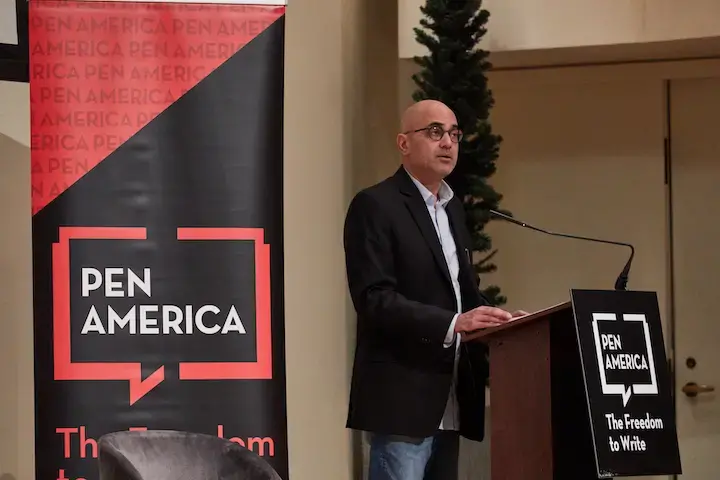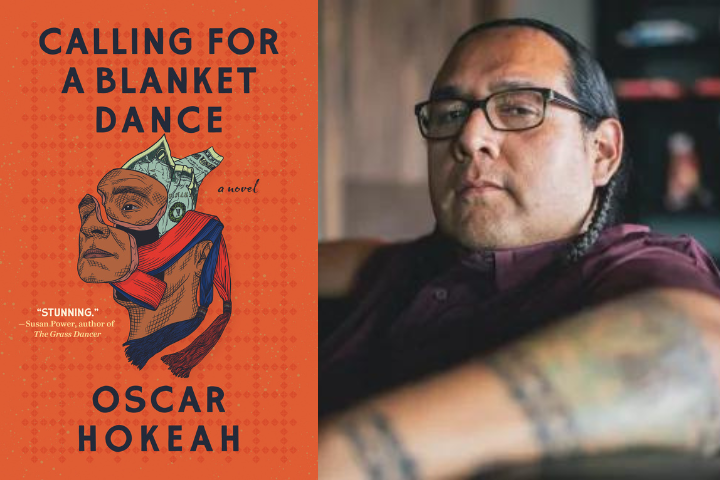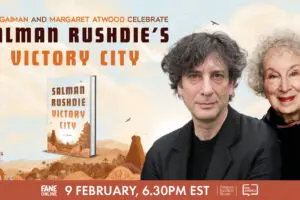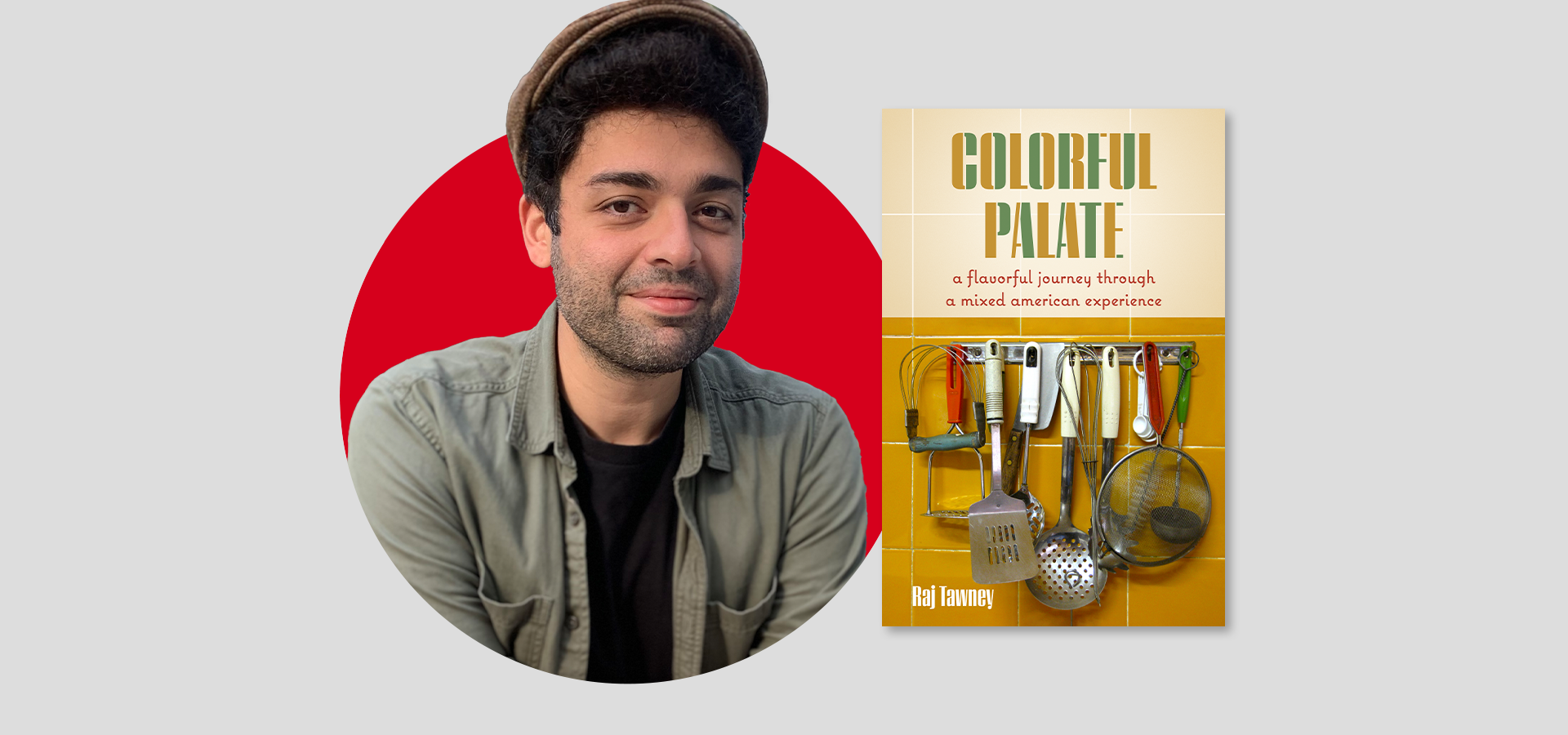
Raj Tawney | The PEN Ten Interview
November 9, 2023
In Raj Tawney’s debut memoir, Colorful Palate (Fordham University Press, 2023), food is time travel. As a young man born into an Indian, Puerto Rican, and Italian-American family, and a world that treated him cruelly as a mixed-race child, Tawney finds comfort and wonder cooking in the kitchen with his mother and grandmother. Through the meals they made Tawney found not simply rich flavors, but windows into the cultures that thread his heritage. Chronicling his coming of age through the recipes, music, clothes, and New York City that shaped him, Tawney’s Colorful Palate is a loving look at food and family that doesn’t shy away from interrogating race and identity.
In conversation with Pen America’s New York Literary Awards Intern, Anna Lasek, for this week’s PEN Ten, Raj Tawney speaks on intersectionality, discovery, and the writing process of Colorful Palate. (Barnes & Noble, Bookshop)
1. What inspired you to write Colorful Palate?
A lifetime of confusion, frustration, and delicious meals. I wanted to prove to myself and my family that our complicated yet marginal lives were in fact more rich and vibrant than anyone else’s. I grew up worshiping classic New York stories, in film and literature, and I always felt that my life could be the next great one but it would take a lot of soul-searching before I knew how to tell it. Food has remained a consistent thread since childhood and I realized that it was used in my family as a powerful tool to help navigate unknown cultures. Once I started exploring deeper into the past, I found it was a driving force towards change. The “normal” existence I once wished for as a kid turned into a sense of pride I needed to share with others.
2. Colorful Palate is a journey of self-discovery through food and family. How did writing this memoir change or clarify how you saw your relationship to each?
Writing has always been cathartic for me. I’ve written countless personal essays as a way for me to creatively work out of the clutter and chaos inside my head. Each time I’d work on a chapter, I was actively working through my own issues with my family as well as my own struggles. As I tried to better understand my family members, I found that food was regularly involved in the background of conversations or important events. So, I decided to interweave these moments in my life with dishes that helped bring me back to those scenes. Food helped me understand the courage and strength my mom and grandma had. The recipes were survival guides. The ingredients were ammunition. I didn’t fully realize it till I began writing the book.
“Food has remained a consistent thread since childhood and I realized that it was used in my family as a powerful tool to help navigate unknown cultures.”
3. In my reading of Colorful Palate, I clung to the association of food as a source of growth. Food was your vehicle to understand your heritage and identity. What do you hope readers will gain from reading your memoir? How do you hope reading your memoir will change how they think of their relationship to food?
I’m so glad you saw that. That means a lot. I hope readers will understand that a home cooked meal is more than just something tasty. The elements on your plate took an entire journey, along with some sacrifice and pain. Food is the human condition, whether we’re conscious of it or not. Sit down with anyone who’s cooked you a meal from their culture and most likely, they’ll have a story to share of how the dish entered their repertoire. Food is personal and it’s vital toward understanding generations that have come before us.
4. Food played a pivotal role helping you establish relationships not only with others, but to yourself. But what about place and story? Are there specific places you keep going back to in your writing like the recipes you return to?
I continuously go back to the kitchen in my childhood home. That’s where I learned to roll and marinate meat, chop onions and garlic, and make a pot of coffee for my elders. I live there a lot in my head––sometimes, too much. Maybe that kitchen was a comfort zone, a tiny room where everyone congregated and discussed their day. I can still see it and smell it just as it was when I was a kid. It’s sacred ground.
“Food is the human condition, whether we’re conscious of it or not. Sit down with anyone who’s cooked you a meal from their culture and most likely, they’ll have a story to share of how the dish entered their repertoire.“
5. Your Grandmother Nani uses food to tell you stories about self-expression and identity development within your own family. Why do you think people need stories? What is gained through sharing stories?
You can’t make it through this life without earning stories along the way. Some have more to tell than others and don’t feel the need to project them to the world. My grandmother was a person who lived a difficult and fascinating life but wasn’t handing out her life’s stories so easily. She was a silent trailblazer in my opinion. She wasn’t looking for anyone’s pity or sympathy––she just lived. I think that’s difficult for some of us to wrap our heads around, where oversharing and fabrication have become common practice. I think a lot of people today are boring and, to be frank, full of crap. People of my grandmother’s generation had too much to do than think about themselves. If only my Nani how marvelous she was. Part of my mission for this book is to tell her story so others can gain from her experiences.
6. What do you consider to be the biggest threat to free expression today? Have there been times when your right to free expression has been challenged?
News headlines are affecting our ability to conceive of clear and accurate thoughts. We are consumed by sensationalism, controversy, human drama, and massive egos on a daily basis, leaving less room for diverse storytelling that actually relates to everyday people. Even as book banning has become a controversial issue once again, the only ones truly suffering are potential readers. Major media outlets and government officials gain more attention while the rest of us watch on and suffer. And what is learned at the end of the day? The more turmoil, the greater the influence. As a result, our sense of reality continues to become further distorted.
When I had an agency and they were shopping my proposal around, many publishers thought it was beautiful but not edgy or marketable enough. Refusing to embellish or exaggerate, the agency sort of gave up on me and I eventually decided to move forward without an agent. I began to shop the proposal around myself and received multiple offers within weeks. Fredric Nauchbaur, director of Fordham University Press, believed in my work and championed it with confidence, so I signed with them. Their small-yet-mighty team has been hugely supportive and has allowed me to stay true to myself. I couldn’t ask for better humans.
7. How do you see food as a form of expression as it relates to free expression?
As with any creative form, once you learn and master the basics, you can experiment and go bolder. My mom and grandma, as well as my wife Michelle, not only learned the cuisines from their own cultures but the cultures of their partners. With such a vast knowledge, I’ve seen all of them mix ingredients and flavors to produce dishes that are reflective of their own unique personalities. Food was first an entry point for these women, and whether their meals were accepted or not, it didn’t stop them from pushing themselves––and not for anyone else, but simply because they loved the craft. Food has never been a fiscal ambition for any of them. It’s purely a form of creative expression and love of family.
8. One of my favorite moments in the book was a discussion of music where you speak about processing emotions through the art of musicians. What advice would you give to young writers on how to navigate their emotions when writing about deeply personal and meaningful experiences?
Make sure you write down everything you’re feeling, as raw as it can be, and don’t hold back. Even if it’s difficult putting your feelings on paper and even if you think it sucks or you sound like a ridiculous, crazy whacko––just let it out. You can always revisit, revise, or throw it in the trash. Sometimes, we don’t know how great we can be until we see it in front of our eyes.
“We are consumed by sensationalism, controversy, human drama, and massive egos on a daily basis, leaving less room for diverse storytelling that actually relates to everyday people. Even as book banning has become a controversial issue once again, the only ones truly suffering are potential readers.“
9. How did you navigate publishing your family’s stories and pictures with them? Were they open to being included in your memoir?
My family has been supportive my entire life. And when I finally got the guts to start publishing my little essays, they didn’t flinch. Year after year, I kept writing personal essays that included them and they had my back. I think knowing I had their support really helped me write the book because they knew I’d never hurt or trash them. My goal was to tell my story and theirs with accuracy, not sensationalism. I think I achieved that much. And when Fordham asked to include photos, they helped me by digging through photo albums and drawers to search for the best pictures that would help guide the story. So far, at least one of them has been at every event for this book. It can be nerve-racking at times but I’ve loved having them there. They add an element of realness to the stories I’m sharing with a room full of strangers. This whole experience has been emotionally draining at times but also beautiful.
10. Who are some of the food writers and chefs whose work inspires you?
Well, I know he doesn’t need more praise but Anthony Bourdain meant a lot to me during my teens and twenties, and still does. It wasn’t just his love of food and his curiosity of other cultures, but I identified with his New Yorkiness, bluntness, and outspokenness. I thought I was the only one who was passive aggressive toward modern society and melancholy for the snapshots of the past, while still wanting to understand the present and its beauty. He was also a loner and misfit, but sensitive and compassionate. I saw myself in him and still do. Even though a critic recently made a snide remark about my capitalizing on Michelle Zauner and Stanley Tucci’s books––both of which I haven’t read and wasn’t aware of while writing my own book––I give Bourdain most of the credit for the inspiration behind my memoir, as well as my food/identity essays that stem back about six years now. I wouldn’t have had the courage to push beyond my own comfortability, or possess the same romanticism about food and culture, if I hadn’t spent much of my formative years reading and watching him. I also love Action Bronson for how he incorporates food and New York nostalgia in his lyrics. His show was pretty good, too.
As for chefs, Lidia Bastianich and Carla Hall were so important as their presence on TV helped me forge more dialogue with my mom and grandma in later years. I’m critical of most TV food personalities, but sometimes, authentic folks sneak in. I’m proud to say I took a chance and wrote to both of them, and they both blessed my book with a blurb (Carla’s came on pub day – what a gift!). I still can’t believe it. My grandma would be dumbfounded if they knew these incredible women, who we spent so much time watching, were reading about her life.
We didn’t grow up eating at fancy restaurants. Diners and buffets were fine-dining to us. So, for better or for worse, the faces on TV had seats at our table.
Raj Tawney is a writer and journalist whose work largely reflects his New York–area upbringing and sensibility. Raised in an Indian, Puerto Rican, and Italian-American household, Tawney has explored his own race and identity through stories published in The New York Times, The Washington Post, NBC News, USA Today, Smithsonian magazine, and many other outlets throughout the country. His debut memoir, Colorful Palate: A Flavorful Journey Through a Mixed American Experience, was released October 3, 2023 from Empire State Editions/Fordham University Press. He is currently working on a Middle Grade novel for Paw Prints Publishing/Baker & Taylor, due out fall 2024.
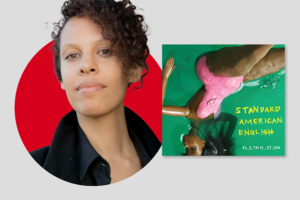
Elisabeth Houston | The PEN Ten Interview
I suppose I’m driven to put my work out in the world precisely because of the desperate state of the world.
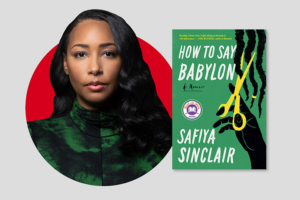
Safiya Sinclair | The PEN Ten Interview
For me, and for the women in my family, our stories are the way we preserve our history, our culture, and the vital parts of ourselves that our ancestors gave to us.
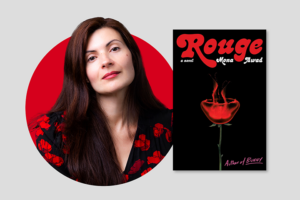
Mona Awad | The PEN Ten Interview
Really the novel explores how we often focus on the surface in order to avoid pain, or any kind of difficult, deep internal work.
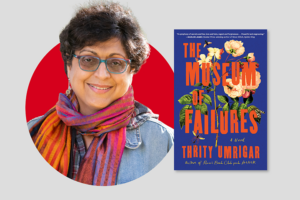
Thrity Umrigar | The PEN Ten Interview
Because what I’m most interested in is examining the systems and forces that create divides between people, those power dynamics that separate us.

